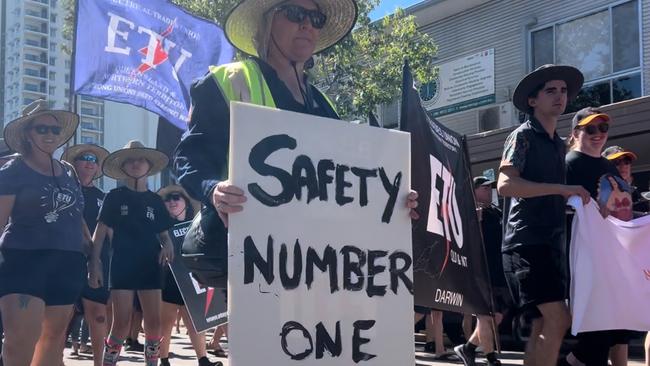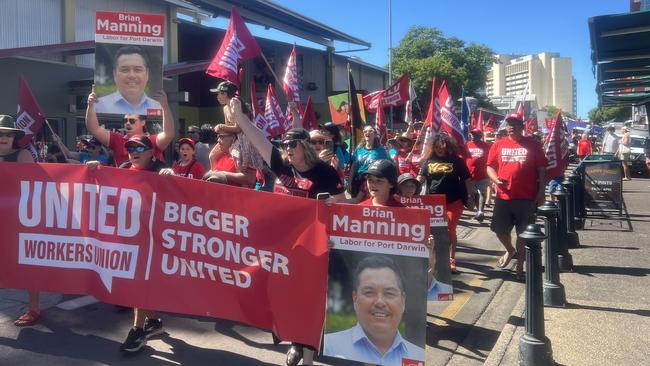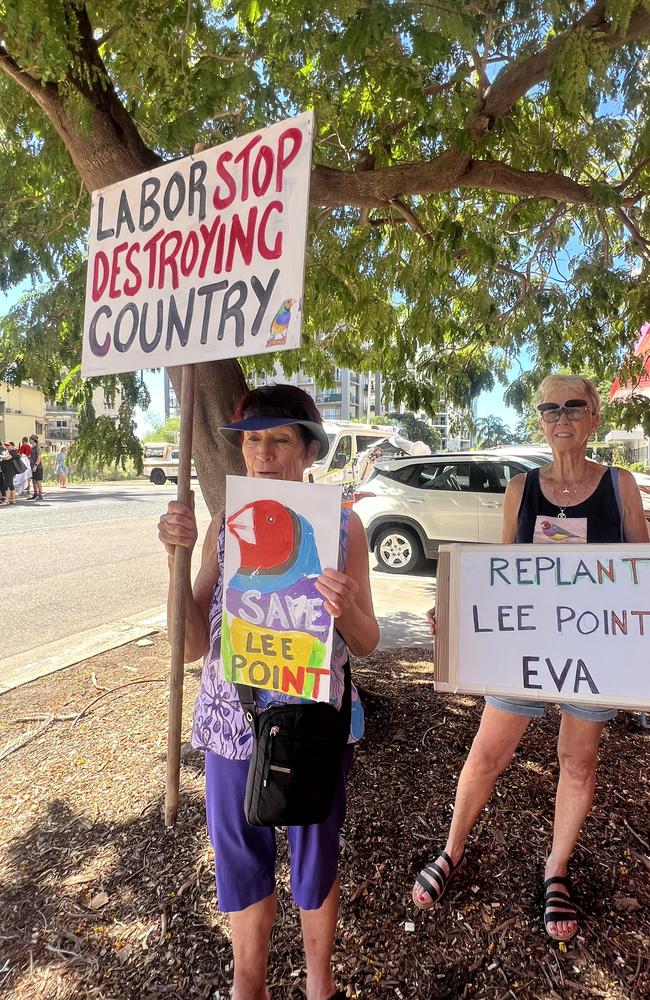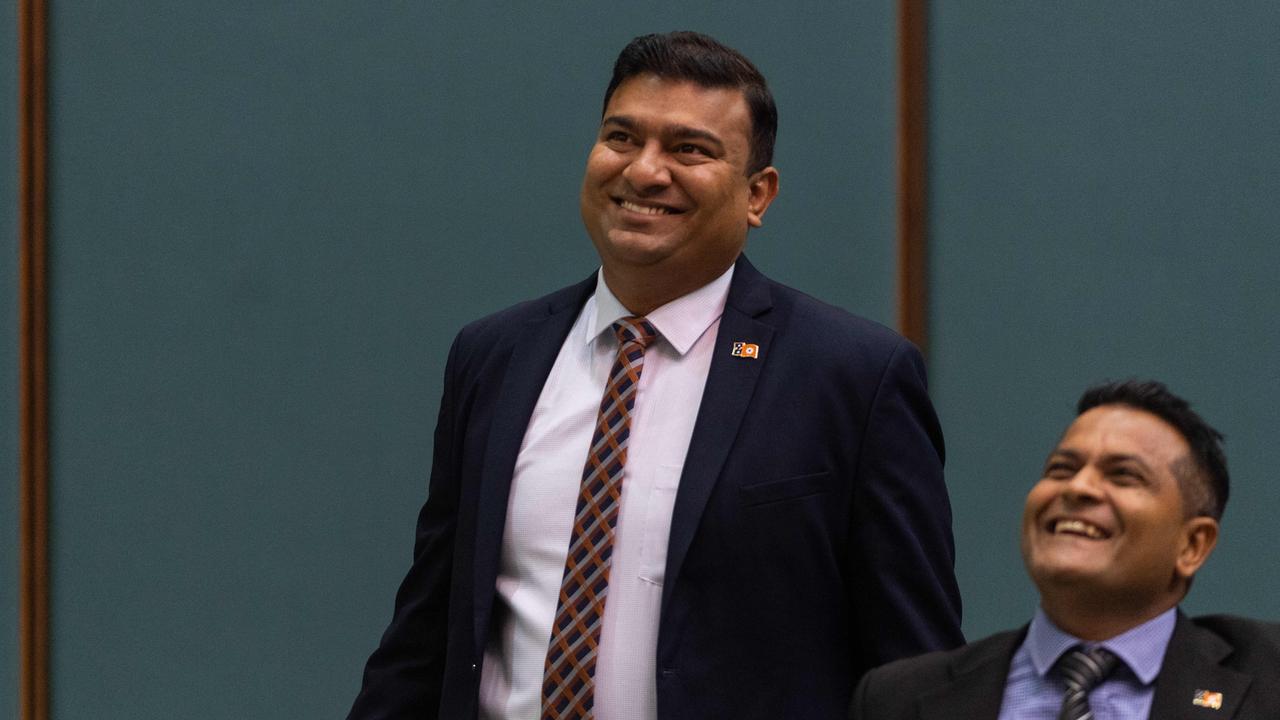Darwin: Labour Day march attracts hundreds as causes, rights take centre stage
Teachers, nurses, and tradesmen banded together as a suite of unions and associations made the most of their Labour Day. See the photos.

Hundreds of nurses, tradesmen, teachers, and even political figures stood shoulder-to-shoulder as they took the streets, marching on behalf of their most treasured causes.
On Monday morning, around 400 people took part in Darwin’s Labour Day march, with a multitude of unions, associations and causes represented.
A spattering of elected officials also attended the event, including Solomon MP Luke Gosling, former Chief Minister Natasha Fyles and Police Minister Brent Potter.
A handful of prominent local activist groups also made their voices heard, with Save Lee Point and Territorians for Palestine a constant presence throughout the march.

Tyson Geary said he was marching for worker’s rights – like his father did.
“My parents and grandparents would march in this event as far back as I can remember,” he said.
“It’s about reminding people there are those of us who need a voice, and there are many of us who will band together and make that known.”

Poppy Collins from Bega, NSW, said she had attended especially to stand alongside a cause that resonated with her from thousands of kilometres away.
“I’m standing in solidarity with everyone seeking to end Lee Point – it’s not home for me at all, but we feel the same pain back home and we’re feeling this pain everywhere in the world,” she said.
“It’s great and amazing to be able to support other people by standing by their side.”

Robin Knox reflected on how Labour Day had evolved over the years.
“In the 1980s, the marches were so big, there were massive effigies and choirs and lots of participation due to strong unionism,” she said.
“It’s not so big now – perhaps replaced by community movements.
“For example, Lee Point, domestic violence (and more), not so much noise by the union movement.”
Originally published as Darwin: Labour Day march attracts hundreds as causes, rights take centre stage



